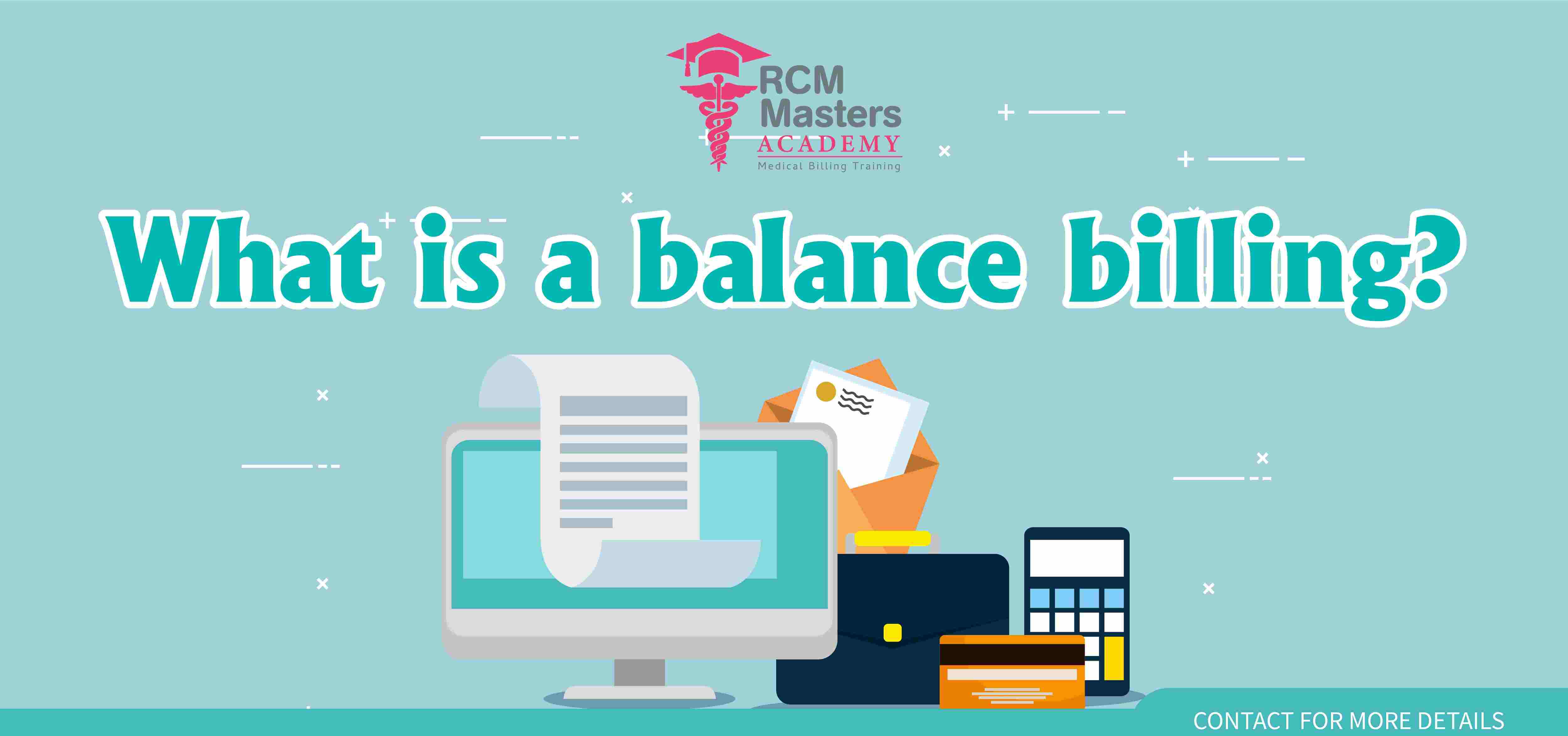 info@rcmmastersacademy.com
info@rcmmastersacademy.com

Medical bills can be confusing and overwhelming. While we may expect our insurance to cover the majority of our healthcare costs, that is not always the case. One type of medical billing that can catch patients off guard is balance billing. We will discuss what balance billing is, why it happens, and what you can do to protect yourself from it.
What is Balance Billing?
Balance billing occurs when a healthcare provider bills a patient for the difference between what the provider charges and what the patient's insurance company pays. This can happen when a patient receives care from an out-of-network provider, or when their insurance company does not cover a specific treatment or service. For example, if a patient receives an emergency medical procedure from an out-of-network provider, the provider may bill the patient for the difference between their usual charge and what the patient's insurance company paid.
Why Does Balance Billing Happen?
Balance billing happens because healthcare providers may charge more for their services than what insurance companies are willing to pay. This can be especially true for out-of-network providers, who may not have negotiated rates with insurance companies. In some cases, balance billing can also occur when a patient receives a service or treatment that their insurance company does not cover. In either case, the patient is left responsible for paying the difference between what the provider charges and what their insurance company pays.
What Can You Do to Protect Yourself from Balance Billing?
There are several steps you can take to protect yourself from balance billing:
1. Know your insurance coverage: Make sure you understand what your insurance plan covers and what it does not. If you are unsure, contact your insurance company to ask questions and get clarification.
2. Choose in-network providers: Whenever possible, choose healthcare providers that are in-network with your insurance plan. This can help ensure that you are not responsible for paying any balance billing charges.
3. Ask questions: Before receiving any medical services, ask your provider if they are in-network with your insurance plan, and if they will be billing you for any balance billing charges.
4. Negotiate with your provider: If you do receive a balance billing charge, try negotiating with your healthcare provider. They may be willing to work out a payment plan or reduce the charge.
5. Contact your insurance company: If you receive a balance billing charge that you believe is unfair or incorrect, contact your insurance company to dispute the charge.
Balance billing can be a confusing and frustrating aspect of medical billing. However, by understanding what it is, why it happens, and how to protect yourself from it, you can make informed decisions about your healthcare and avoid unexpected bills. If you have any questions or concerns about balance billing, don't hesitate to reach out to your healthcare provider or insurance company for assistance.
You can enroll for our Online Medical Billing Training here: